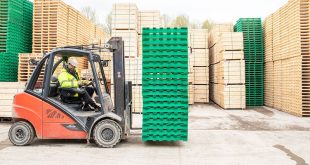Reusing small empty sites of up to two hectares could more than meet UK housing demand without building on green field land, according to the Federation of Master Builders.
A new research report commissioned by the FMB from the London School of Economics and Political Science says that this must be coupled with upgrading existing buildings, reclaiming and remodeling empty buildings, converting and upgrading homes to make them more energy efficient.
If there is concerted effort to make existing homes greener and more energy efficient, the research found that the building industry had enough work in this field to keep every small and medium sized builder running to stay on top for the next 30 years.
The report, ‘Housing Futures: Our Homes and Communities’, written by Professor Anne Power and Laura Lane of the Centre for Analysis of Social Exclusion (CASE) at LSE examines the four big pressures – supply and affordability of homes; environmental limits; social cohesion; and economic change – driving the future of housing policy in the UK.
It highlights the fact that there is capacity within existing communities to meet demand for homes. Small available sites of under two hectares within built up areas are rarely counted and micro-sites of half an acre of less are too numerous to count. Yet the report estimates that even in inner London there are enough micro-sites to supply all the new homes we need.
The retrofitting market for small builders offers, the report says, ‘a very rosy future painted green’, as homeowners realize the savings that could be made through making their homes more energy efficient. To capitalize on this growth market, the report calls for higher standards within the building industry, particularly the 200,000 Small to Medium sized Enterprises (SMEs) which make up 99 percent of building industry.
A ‘Code for Sustainable Existing Homes’ would drive up the energy efficiency standards of our existing homes and conversions. Accreditation and Competent Person Schemes enhance the status of the building industry, as long as they are linked to real experience and hands-on training.
Richard Diment, Director-General of the FMB said:
“Retrofitting is becoming an important part of any small builder’s workload but this can only increase if SMEs can demonstrate the value and skill of their work which is why the FMB is investigating the need to start its own competent person scheme. We hope to use this to further improve the reputation of members that join the FMB, through regular on-going training and a clear grading system.
“Construction SMEs carry out almost 50 percent of all construction work in the UK, yet builders are often viewed with suspicion. In many other countries building is a respected trade, almost on a par with the professions and this is mainly due to accreditation and competency schemes. We recognise the important role such schemes will play in improving the reputation of the UK building industry.”
 Builders Merchants Journal – BMJ Publishing to Builders Merchants and the UK merchanting industry for more than 95 years
Builders Merchants Journal – BMJ Publishing to Builders Merchants and the UK merchanting industry for more than 95 years



